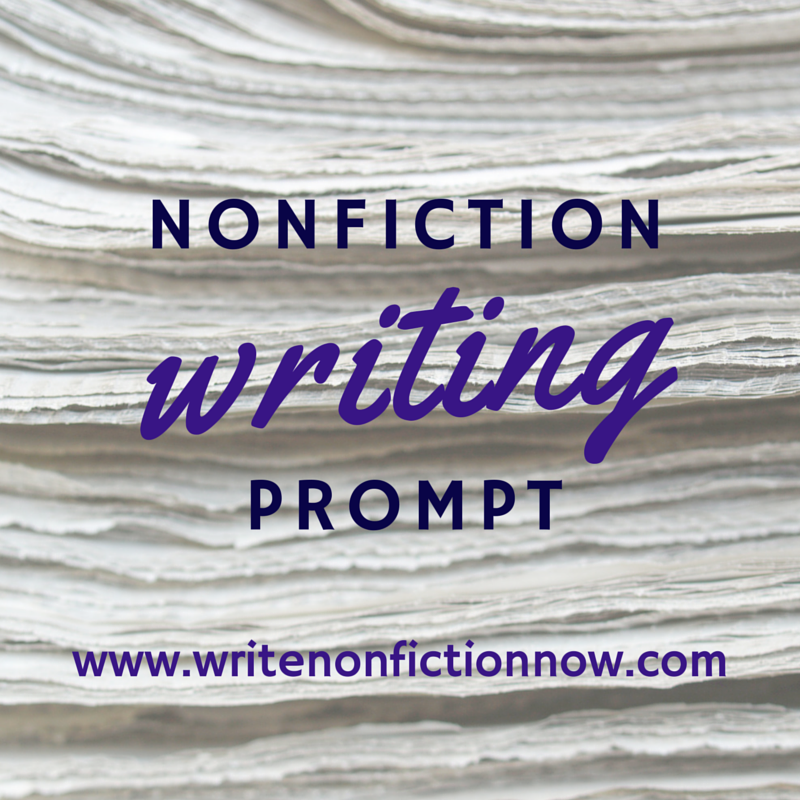If you are a memoirist or an essayist, you can take your desire and ability to write personal stories and put it to use in reported articles. Even if you don’t usually write pieces based on your life experiences, using personal anecdotes and vignettes can provide a powerful way to produce articles for publication.
I have used experiences and issues from my life in articles numerous time with great success. For example, I included my concerns about my son’s and daughter’s experiences in competitive activities, like ice skating and dance, to write a regional magazine piece about the positive and negative effects of competition on youth. I addressed the issues by interviewing coaches and psychologists. I also wrote a regional magazine article called “The Ins and Outs of Changing Schools.” This piece stemmed from my concerns about how often my two children had changed schools. I interviewed psychologists and wove our personal story into the piece. (The article won an award!)
You can write about what you know—and don’t know—in the same manner.
How to Complete Nonfiction Writing Prompt #50
To complete this writing prompt, follow these 8 steps:
- Brainstorm possible topics by exploring the issues facing you currently or in the past.
- Evaluate if these issues are universal—everyone struggles with them—or if others like you—parents, athletes, entrepreneurs, etc.—struggle with them as well.
- Determine if you can find experts to interview to help address the issue at hand.
- Find three to five magazines that publish articles related to these issues.
- Research these magazines to discover the most appropriate section in the publication for your piece and the editor who handles that section.
- Study the magazine’s articles, and then structure your article in a manner that seems appropriate for the publication.
- Write a query letter to one or all the magazines pitching your idea; include the experts you hope to interview for the article.
- Once you receive an acceptance, conduct the interview and write the article. (For a prompt on interviews, click here.)
Weave your story into your article. I’ve done this most successfully by including an anecdote or vignette based on personal experience into the lead or first paragraph of the piece. I then mention some of my own issues or concerns as I posed solutions or tips from both the expert and myself. I often end the article with a personal story as well.
If you want to learn more about how to write articles based on your life experiences for publication, join the Nonfiction Writers’ University (NFWU). The next NFWU event, which takes place on May 4, features journalist, author and memoir expert Marion Roach. (Learn more here.) Previous NFWU member challenges have included detailed instructions and tips on how to conduct interviews and write magazine articles and query letters. These homework assignments, as well as related events, are archived in the NFWU for members to access at any time. To find out more about or join the NFWU, click here.
The NFWU contains a wealth of information about achieving your nonfiction writing and publishing goals in general.  As a member, you receive 27 months of NFWU challenges, assignments, and coaching and educational-event recordings with a variety of experts in the field as well as introductory gifts worth more than $150. Plus, each month you’ll have access to live coaching and events! Members also get additional bonuses during the year. Join now to receive two bonuses courses, How to Write a Short Book Fast and High Performance Writer! Click here to learn more and join.
As a member, you receive 27 months of NFWU challenges, assignments, and coaching and educational-event recordings with a variety of experts in the field as well as introductory gifts worth more than $150. Plus, each month you’ll have access to live coaching and events! Members also get additional bonuses during the year. Join now to receive two bonuses courses, How to Write a Short Book Fast and High Performance Writer! Click here to learn more and join.

Karen Regan says
Hi Nina, thanks for inspiring me daily, I’m now focusing on publishing a book of poems written by my Mother ( going back as far as 1959); some of my personal poems and some of my sons. I’m thinking if i start off with a book of poetry then my non fiction novel will follow. I’m not sure where to start. Any help/suggestions will be greatly appreciated. Thanks again! k
Nina Amir says
Where to start depends upon your goals, Karen. Career planning helps figure this out.
And be sure to stipulate nonfiction or fiction. You can’t write a nonfiction novel. It’s either made up or real life.